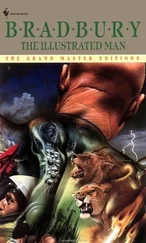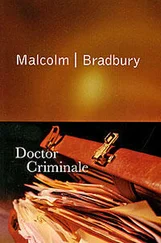Malcolm Bradbury - The History Man
Здесь есть возможность читать онлайн «Malcolm Bradbury - The History Man» весь текст электронной книги совершенно бесплатно (целиком полную версию без сокращений). В некоторых случаях можно слушать аудио, скачать через торрент в формате fb2 и присутствует краткое содержание. Жанр: Современная проза, на английском языке. Описание произведения, (предисловие) а так же отзывы посетителей доступны на портале библиотеки ЛибКат.
- Название:The History Man
- Автор:
- Жанр:
- Год:неизвестен
- ISBN:нет данных
- Рейтинг книги:3 / 5. Голосов: 1
-
Избранное:Добавить в избранное
- Отзывы:
-
Ваша оценка:
- 60
- 1
- 2
- 3
- 4
- 5
The History Man: краткое содержание, описание и аннотация
Предлагаем к чтению аннотацию, описание, краткое содержание или предисловие (зависит от того, что написал сам автор книги «The History Man»). Если вы не нашли необходимую информацию о книге — напишите в комментариях, мы постараемся отыскать её.
The History Man — читать онлайн бесплатно полную книгу (весь текст) целиком
Ниже представлен текст книги, разбитый по страницам. Система сохранения места последней прочитанной страницы, позволяет с удобством читать онлайн бесплатно книгу «The History Man», без необходимости каждый раз заново искать на чём Вы остановились. Поставьте закладку, и сможете в любой момент перейти на страницу, на которой закончили чтение.
Интервал:
Закладка:
'You're angry with us, I'm sorry,' says Barbara. 'It's all right,' says Felicity, 'you're just not my kind of scene any more.'
'Anyway, stay for the party,' says Howard. 'Maybe I will,' says Felicity, 'if you mean just be around. I mean, not work. Just enjoying myself.'
'That's right,' says Howard.
Howard goes and fetches the van; the Kirks get in. 'I think you exploited her,' says Barbara, as they drive up the hill toward the shopping precincts. 'Still, as you always say, everybody exploits somebody. I'll get the food, you get the wine.' The Kirks move through the precinct, with its artificial fir trees, its massed crowds, its abundance of shiny goods. Then they drive back down to the damaged terrace; there is just time to get the children off to school. 'Last day, last day,' shout the children, as they get into the van. Howard, along with the other mothers, drops them and then goes into the university, to dictate letters, say goodbyes. The trunks are piled up for collection by British Rail outside Toynbee and Spengler; buses are taking students down to the station. From the administration building still hang tattered remnants from the sit-ins of the term; a red banner saying 'Come on in, it's living' and another saying 'Fight repression'. A small burn mark on the concrete indicates the area where a radical faction tried to advance the protest further by starting a fire. The campus, emptying, looks like a deserted battlefield; inside there are dark corridors and cold rooms where fuel economies amount to social disjunction. Everywhere is the worn, public look of a place that has seen much, and is used by everybody, and belongs to nobody. Howard sits there, in the purity of his anonymous room; he works and he telephones; he looks with pleasure over the 'landscape of his late victories. In mid-afternoon, he goes through the littered Piazza to his van, and drives into town, to pick up the children from school. The schoolyard is buoyant with farewells, crowded with parents; Martin and Celia run to the van bearing toilet-roll Santas, and child art calendars, and an attempt, on Martin's part, at a crib. Martin has a black eye; Celia's boutique dress is torn. 'What happened to you?' asks Howard, as they get in. 'Oh,' says Celia, 'we had a party.'
Howard drives back toward the stage and scene of his own. In the kitchen, Barbara is absent; he hears water running in the bathroom. He sets to, and opens bottles; he walks about the house, arranging furniture, setting out spaces and counter-spaces. The darkness is down already; he stands in his bedroom, while glow lights the battered houses opposite, and fixes lights. Barbara comes out of the bathroom, and he goes in. He strips and takes a bath, powders himself, and goes through into the bedroom to dress. Barbara is in there, putting on a bright silvery dress. 'Is it all right?' she says. 'Where did you get it?' asks Howard. 'I bought it in London,' says Barbara. 'You never tried it on for me,' he says. 'No,' says Barbara, 'I offered, but you'd not got time.'
'It's nice,' says Howard. 'Yes,' says Barbara, 'he had very good taste.' Barbara goes out of the bedroom; Howard begins to dress himself, smartly, neatly, for the fray. The children come in, and run around. 'Will the people make as much mess as they did last time?' asks Martin. 'I don't think so,' says Howard, 'not so many of them.'
'I hope nobody jumps out of the window again,' says Celia. 'Nobody jumped out of the window,' says Howard. 'Someone just hurt himself a bit.'
'Uncle Henry,' says Martin. 'Is he coming?'
'I don't know,' says Howard, 'I'm not sure who's coming.'
'Supposing nobody comes,' says Celia, 'who'll eat all that cheese?'
'Not me,' says Martin. 'Oh, lots of people will come,' says Howard, 'you'll see.'
And lots of people do come. The cars roar in the terrace. Howard goes to the front door to open it for the first guests; the bright lights from the house fall across the damaged pavements, and shine on the debris and demolition of the street. The guests walk into the glow, towards the step; here is Moira Millikin, carrying her baby, and behind her the Macintoshes, each of them bearing a baby in a carrycot; Mrs Macintosh, when she did deliver, delivered in bulk, and had twins. Barbara comes down the hall, wearing her silvery showpiece and a large Russian necklace, her hair done in a social bun. 'Your lovely parties,' says Moira, coming inside, taking off her cape, showing her pregnant bulge, 'Can we stick this one somewhere?'
'And these,' says Mrs Macintosh, looking very thin, with just a small loose bounce at the stomach where not all fitness is back. 'Hello, Kirks,' says Macintosh, taking off his macintosh, 'Are we the first ones again?'
'Great to see you, come inside,' say the hospitable Kirks, a welcoming couple, both at once. No sooner are the first arrivals in the living-room, with drinks, talking breastfeeding, when more guests arrive. The room fills. There are students in quantities; bearded Jesus youths in combat-wear, wet-look plastic, loon-pants, flared jeans, Afghan yak; girls, in caftans and big boots, with plum-coloured mouths. There are young faculty, serious, solemn examiners of matrimony and its radical alternatives; there are strangers from the Kirks' general acquaintance-a radical vicar, an Argentinian with obscure guerrilla associations, an actor in moleskin trousers who has touched Glenda Jackson in a Ken Russell film. Minnehaha Ho has come, in a cheongsam; Anita Dollfuss, with her big brown dog on a string, is here, fresh from months of sleeping through seminar after seminar. Barbara, in her bright green eye-shadow, her silvery dress, appears here and there, with her plates of food: 'Eat,' she says, 'it's sociable.' Howard goes about, a big two-litre bottle hanging on the loop from his finger, the impresario of the event, feeling the buoyant pleasure of having these young people round him, patched, harlequinned, embroidered, self-gratifying, classless, citizens of a world of expectation, a world beyond norms and forms. He pours wine, seeing the bubbles move inside the glass of the bottle in the changing lights of his rooms. The party booms; a jet out of Heathrow roars over the top of the town; a policecar heehaws away on the urban motorway; in the abandoned houses opposite the little lights flicker, and behind them the expanding urban waste.
Inside the party grows, thickens, becomes fissiparous. Space fills up; activity is forced back through the premises, into new rooms with new colours on the walls and hence new psychic possibilities, rooms with new tests to perform, for there is food spread on a table in the dining-room, and a space for dancing in the Victorian conservatory, and recesses of intimacy and silence upstairs. Somewhere someone has found a record-player and set it going; somewhere else in the house a guitar is playing. 'Hi,' says Melissa Todoroff, arriving in a tartan dress, 'I salute the radical hero. I think you're wonderful, I think you're tops.'
'Let me take your coat,' says Howard. 'Thanks,' says Melissa. 'Now. Where do I go to get laid?' In the hall the bra-less girl from Howard's seminar, still bra-less, is explaining the philosophy of Hegel in detail to the actor who has laid hand on Glenda Jackson, and has now laid hand on the bra-lessness. 'It's eminently a dialectical portrait,' says the girl. 'Don't pinch.' In the living-room, the familiar group or coterie from the Radical Student Alliance stand together in a corner, solemn, looking a little like the scene at the Last Supper after the guests have risen. They are being accosted by Miss Callendar, who wears a bright thin caftan, and has let loose her hair, and is saying, 'Hello, what have you all come as?' In the Victorian conservatory, where the dancing is desultory, Barbara stands in silver, talking to Minnehaha Ho, who is wide-eyed and solitary against the wall. 'What kind of contraceptive do you use?' Barbara is asking, in her sociable concern. On the landing Felicity Phee, in her same long skirt, is talking to Dr Macintosh. 'The awful thing is,' says Felicity, 'I thought I'd found out where I was and now I'm there it's not where I am at all. If you see what I mean.'
Читать дальшеИнтервал:
Закладка:
Похожие книги на «The History Man»
Представляем Вашему вниманию похожие книги на «The History Man» списком для выбора. Мы отобрали схожую по названию и смыслу литературу в надежде предоставить читателям больше вариантов отыскать новые, интересные, ещё непрочитанные произведения.
Обсуждение, отзывы о книге «The History Man» и просто собственные мнения читателей. Оставьте ваши комментарии, напишите, что Вы думаете о произведении, его смысле или главных героях. Укажите что конкретно понравилось, а что нет, и почему Вы так считаете.











